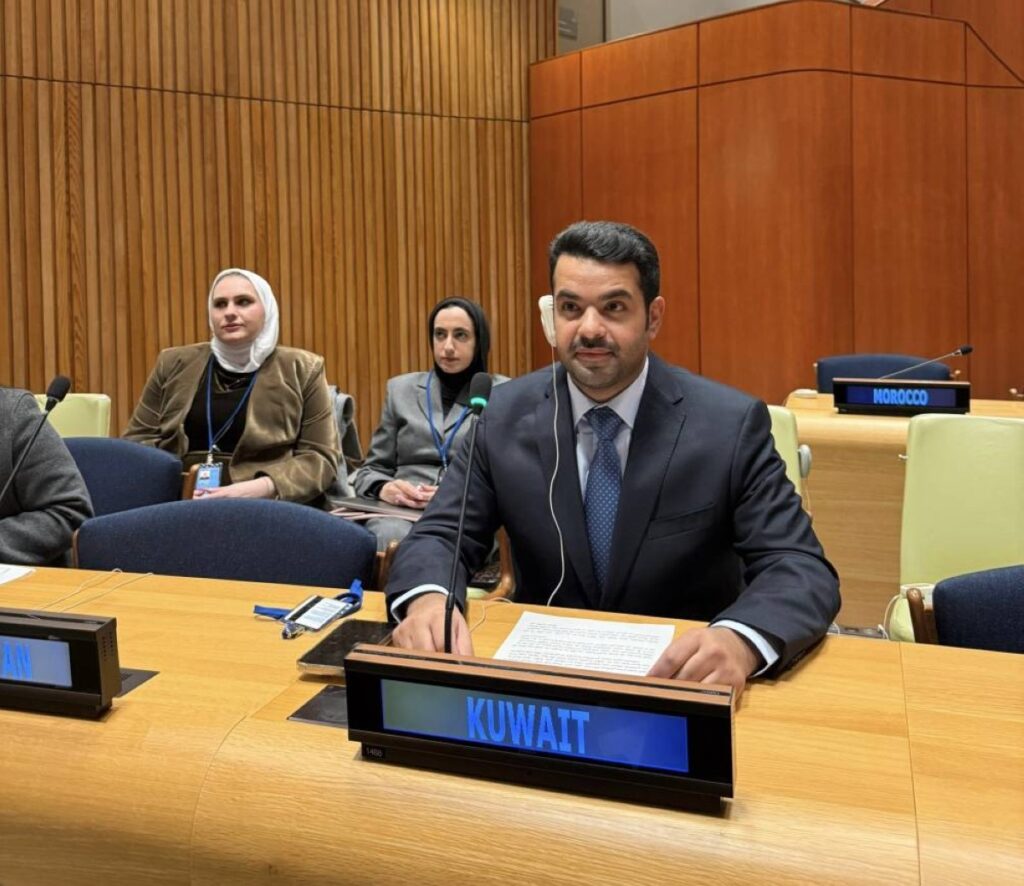NEW YORK: Kuwait reaffirmed its longstanding commitment to combating human trafficking since joining the UN Convention against Transnational Organized Crime and its related protocols, which require states to criminalize online exploitation and cross-border crimes.
Speaking before the UN General Assembly’s high-level meeting to review the Global Plan of Action to Combat Trafficking in Persons, Public Prosecution official Fahad Al-Mutairi warned that advanced technologies—including artificial intelligence—have become tools used by trafficking networks.
He noted that criminals now rely on algorithms to target victims, fabricate digital identities, conceal financial transactions, and exploit digital platforms for recruitment. Al-Mutairi said the rapid evolution of AI poses major challenges to justice systems, including difficulties in early detection, complex electronic evidence, and the swift movement of crimes across borders.
He stressed the need for clear mechanisms such as developing counter-AI tools for early detection, enhancing cooperation with technology companies to monitor exploitative content, and establishing shared databases linked to national referral systems. He also called for international regulations to ensure the safe and responsible use of AI and prevent its misuse in trafficking operations.
Al-Mutairi highlighted Kuwait’s advanced legislative framework, citing Law No. 91/2013 on combating human trafficking and smuggling of migrants, which provides a precise definition of the crime and imposes harsher penalties when committed by organized groups or across borders. He also referenced Law No. 63/2015 on combating cybercrimes, which explicitly criminalizes using digital networks to promote or facilitate human trafficking, alongside strict penalties for electronic money laundering and for creating online platforms linked to organized crime.
He added that Kuwait’s legal system enables authorities to trace criminal groups using modern technologies by analyzing digital evidence, identifying patterns of exploitation, and tracking electronic communications linked to trafficking cases. Al-Mutairi concluded by emphasizing the importance of including a dedicated section on technological misuse in the updated Global Plan of Action, as well as strengthening cooperation with the private sector and digital platforms to identify and block exploitative material. — KUNA

